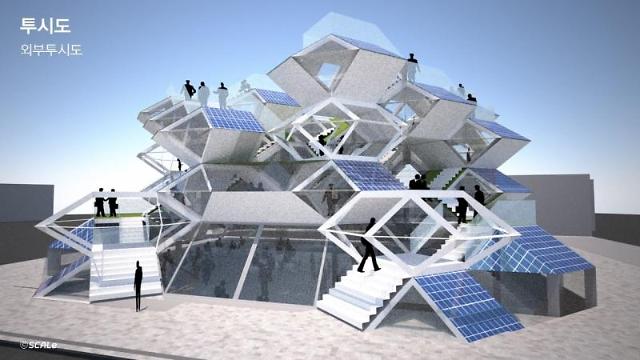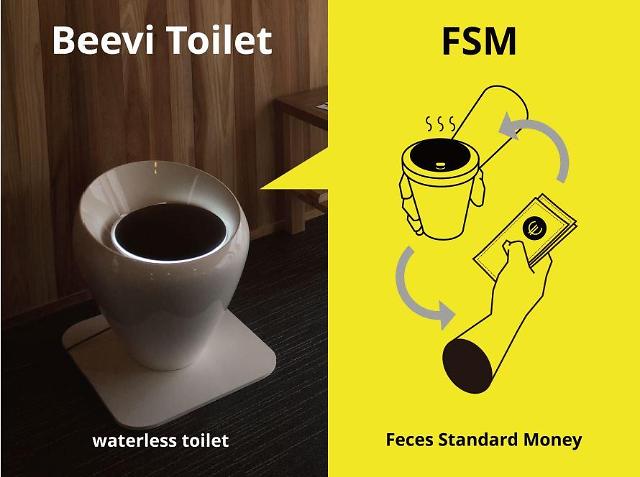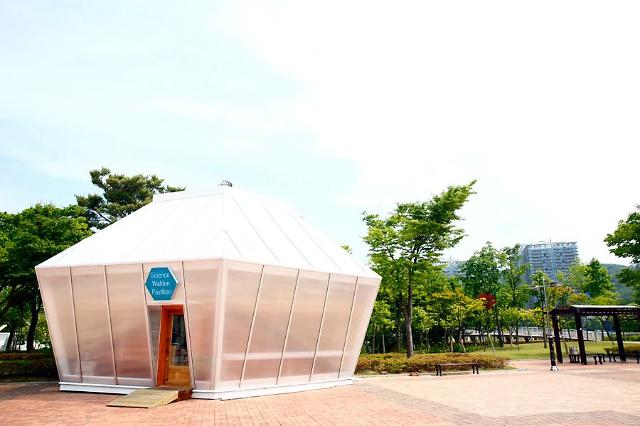
A perspective drawing of UNIST's experimental living lab. [Courtesy of UNIST]
Buoyed by the successful operation of its waterless loo, a research team at a prominent South Korean science school will build an experimental living lab that would use energy from human excrement in actual life.
The "Science Walden" lab will be erected on the campus of the Ulsan National Institute of Science and Technology (UNIST) in the southeastern industry city of Ulsan.
It will have three living quarters equipped with waterless "BeeVi" toilets, a dining room, and an energy-producing bioenergy center, using technologies which have been tested at a toilet pavilion built in May last year on the campus.
The pavilion has a waterless toilet installed with a grinder and a fan to dry down and comminute human excrement. The loo generates carbon and methane. Methane is stored for heating while carbon cultures green algae for biofuel.

[Courtesy of UNIST]
Human manure collected from 100 people generates energy enough to enable Hollywood shower for 18 people. Students can buy a cup of coffee at the campus cafe by trading 200 grams (0.44 lbs) of excrement with imaginary money through their smartphone application.
The process of turning excrement into energy will be adopted at the bioenergy center of the "Science Walden" lab, Cho Jae-weon, a UNIST professor and project manager, said in a statement published on the campus homepage.
The lab will be a step toward an eco-friendly community with no sewage system, Choi said, adding his final goal is to establish an ecosystem in which anyone can trade powdered excrement with an imaginary excrement-standard currency.
Lim Chang-won = cwlim34@ajunews.com


